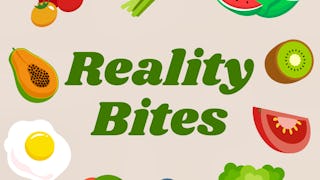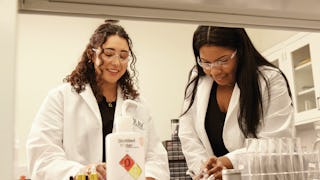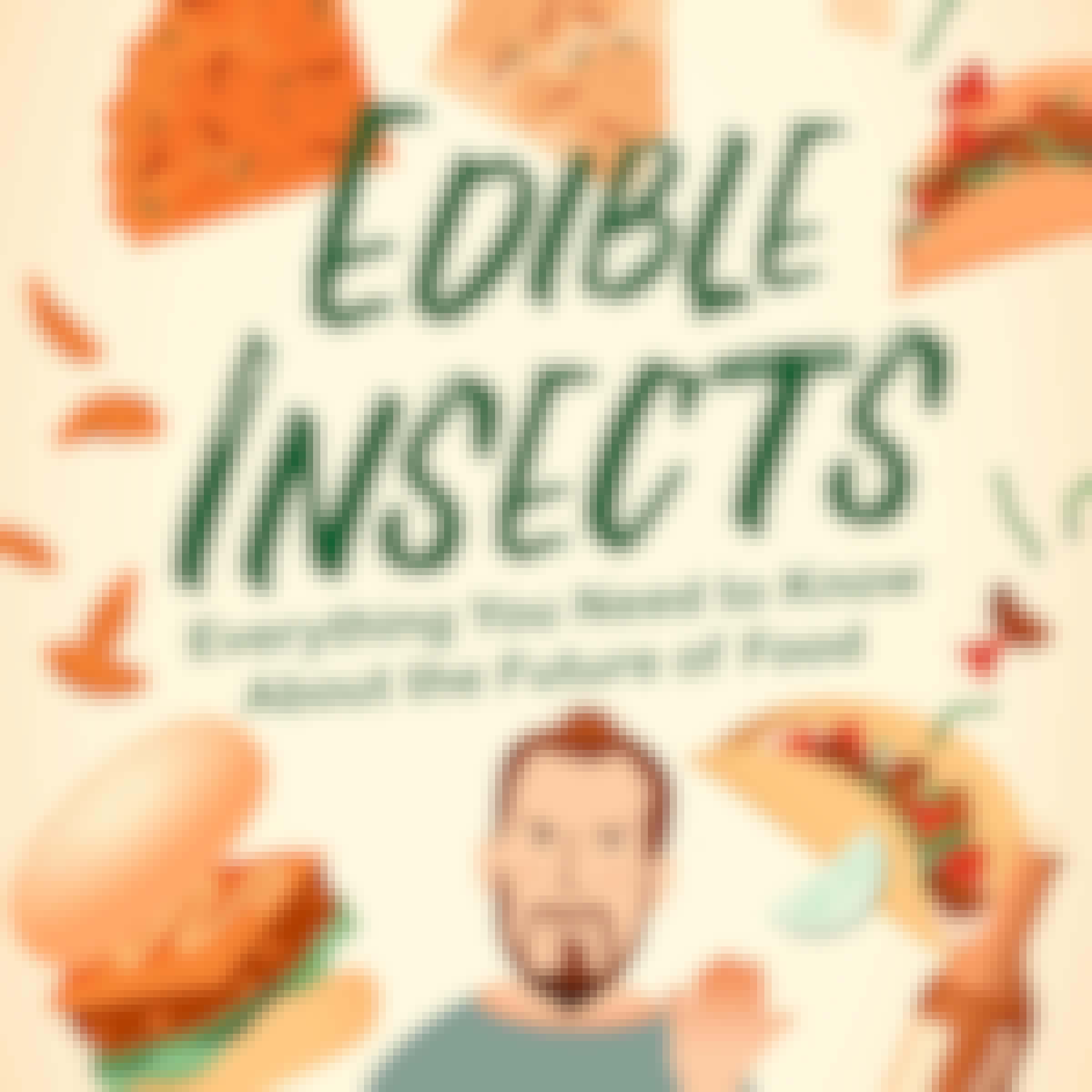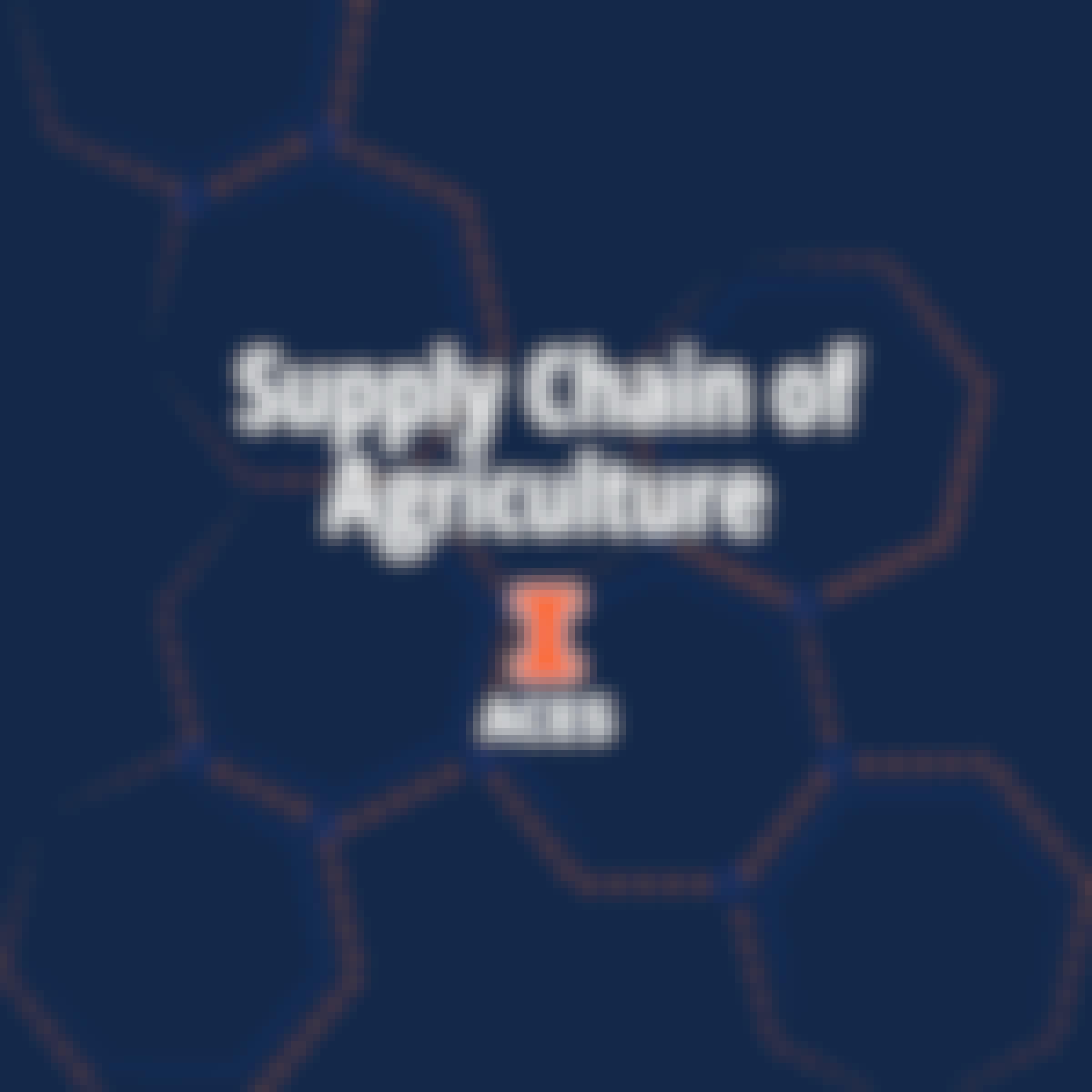- Browse
- Food Science
Food Science Courses
Food science courses can help you learn about food safety, nutrition, sensory evaluation, and food processing techniques. You can build skills in recipe formulation, quality control, and understanding food chemistry. Many courses introduce tools like statistical software for analyzing taste tests, laboratory equipment for testing food properties, and food modeling software to predict shelf life, allowing you to apply these skills in real-world food production and innovation.
Popular Food Science Courses and Certifications
 Status: Free TrialFree TrialU
Status: Free TrialFree TrialUUniversity of Michigan
Skills you'll gain: Sustainable Development, Sustainable Design, Nutritional Assessment, Sustainable Business, Nutrition and Diet, Product Lifecycle Management, Product Development, Social Determinants Of Health, Sustainability Standards, Product Improvement, Environment, Environmental Science, Environmental Resource Management, Health Assessment, Public Health, Climate Change Mitigation, Systems Of Measurement, Chemistry, Risk Analysis, Sustainable Engineering
4.4·Rating, 4.4 out of 5 stars106 reviewsIntermediate · Specialization · 3 - 6 Months
 Status: PreviewPreviewE
Status: PreviewPreviewEErasmus University Rotterdam
Skills you'll gain: Aesthetics
4.5·Rating, 4.5 out of 5 stars18 reviewsIntermediate · Course · 1 - 3 Months
 Status: Free TrialFree Trial
Status: Free TrialFree TrialSkills you'll gain: Quality Assurance and Control, Product Quality (QA/QC), Quality Assessment, Statistical Process Controls, Good Manufacturing Practices, Quality Management, Regulatory Affairs, Safety Standards, Regulatory Compliance, Product Testing, Standard Operating Procedure
4.5·Rating, 4.5 out of 5 stars78 reviewsBeginner · Course · 1 - 4 Weeks
 Status: Free TrialFree TrialU
Status: Free TrialFree TrialUUniversity of Colorado System
Skills you'll gain: Marketing Analytics, Classification And Regression Tree (CART), Probability & Statistics, AI Personalization, Statistical Software, Statistical Methods, Regression Analysis, Data-Driven Decision-Making, Data Ethics, Unsupervised Learning, Statistical Modeling, Data Visualization, Customer Analysis, Statistical Analysis, Predictive Analytics, Marketing Effectiveness, Anomaly Detection, Advanced Analytics, Bayesian Network, Machine Learning
4.8·Rating, 4.8 out of 5 stars12 reviewsIntermediate · Specialization · 3 - 6 Months
 Status: Free TrialFree TrialD
Status: Free TrialFree TrialDDartmouth College
Skills you'll gain: Demography, Environment, Environmental Science, Environmental Issue, Nutrition and Diet, Sustainable Development, Natural Resource Management, Sustainability Standards, Cultural Diversity, Trend Analysis
4.8·Rating, 4.8 out of 5 stars54 reviewsBeginner · Course · 1 - 4 Weeks
 Status: PreviewPreviewT
Status: PreviewPreviewTThe University of Chicago
Skills you'll gain: Climate Change Mitigation, Environment, Climate Change Adaptation, Environmental Issue, Physical Science, Sustainable Development, Physics, Mathematical Modeling, Thermal Management, Environmental Science, Simulations, Energy and Utilities, Chemistry, Systems Of Measurement
4.6·Rating, 4.6 out of 5 stars454 reviewsMixed · Course · 1 - 3 Months
 Status: PreviewPreviewJ
Status: PreviewPreviewJJohns Hopkins University
Skills you'll gain: Environmental Regulations, Chemistry, Environmental Laws, Laboratory Testing, Public Health, Environmental Monitoring, Environmental Science, Health Assessment, Public Health and Disease Prevention, Environmental Policy, Case Studies, Risk Analysis
4.7·Rating, 4.7 out of 5 stars1.4K reviewsBeginner · Course · 1 - 3 Months
 Status: PreviewPreviewP
Status: PreviewPreviewPPontificia Universidad Católica de Chile
Skills you'll gain: Food and Beverage, Meal Planning And Preparation, Process Engineering, Experimentation, Chemical Engineering, Engineering, Materials science, Environment, Systems Of Measurement, Water Quality, Thermal Management, Biochemistry, Chemistry, Scientific Methods, Laboratory Equipment
4.6·Rating, 4.6 out of 5 stars82 reviewsMixed · Course · 1 - 4 Weeks
 Status: PreviewPreviewS
Status: PreviewPreviewSShanghai Jiao Tong University
Skills you'll gain: Materials science, Mechanical Engineering, Engineering, Chemistry, Physics, Manufacturing Processes, Thermal Management, Chemical Engineering, Experimentation, Laboratory Research
4.6·Rating, 4.6 out of 5 stars196 reviewsIntermediate · Course · 3 - 6 Months
 Status: PreviewPreviewN
Status: PreviewPreviewNNational Taiwan University
Skills you'll gain: Food and Beverage, Cooking, Sustainable Development, Socioeconomics, Culture, Nutrition and Diet, Innovation, Food Safety and Sanitation, Cultural Diversity, Sustainability Standards, Environment and Resource Management, Economic Development, Environmental Science, Biology, Pharmaceuticals, Ethical Standards And Conduct, Law, Regulation, and Compliance
4.8·Rating, 4.8 out of 5 stars38 reviewsBeginner · Course · 1 - 3 Months
 Status: Free TrialFree TrialU
Status: Free TrialFree TrialUUniversity of Illinois Urbana-Champaign
Skills you'll gain: Land Management, Supply Chain, Food and Beverage, Supply Chain Systems, Transportation, Supply Chain, and Logistics, Supply Chain Management, Supply And Demand, Production Management, Environment and Resource Management, Market Dynamics, Technology Solutions, Consumer Behaviour
4.8·Rating, 4.8 out of 5 stars42 reviewsIntermediate · Course · 1 - 4 Weeks
 Status: Free TrialFree TrialS
Status: Free TrialFree TrialSStanford University
Skills you'll gain: Cooking, Nutrition and Diet, Meal Planning And Preparation, Resourcefulness, Food and Beverage, Adaptability, Creativity
4.6·Rating, 4.6 out of 5 stars162 reviewsBeginner · Course · 1 - 4 Weeks
Searches related to food science
In summary, here are 10 of our most popular food science courses
- Healthy and Sustainable Foods and Products: University of Michigan
- Reality Bites: Introduction to metaphysics: Erasmus University Rotterdam
- Quality Control and Regulatory in Cosmetic Science: Olay
- Data Science for Marketing: University of Colorado System
- Population, Food, and Soil: Dartmouth College
- Global Warming I: The Science and Modeling of Climate Change: The University of Chicago
- Chemicals and Health: Johns Hopkins University
- Introducción a la Ingeniería Gastronómica - ¡Ciencia en la Cocina!: Pontificia Universidad Católica de Chile
- Fundamentals of Materials Science: Shanghai Jiao Tong University
- Edible Insects: National Taiwan University










